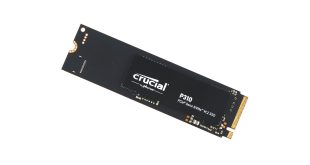OCZ Technology Group a leading provider of high-performance solid-state drives (SSDs) for computing devices and systems, today announced that its PCI Express (PCIe) SSD platform, featuring all Z-Drive R4 PCIe SSD models and VXL software, accelerates virtualization of Microsoft’s cloud-ready SQL Server 2012 database. Providing enterprise, host-based flash performance and support for all virtualization capabilities, this combination of OCZ SSD hardware, with acceleration and virtualization software, is an optimal and cost-effective solution for the data access requirements of SQL Server 2012.
The combination of Z-Drive R4 PCIe SSDs and VXL software enables the full potential of SQL Server 2012 in virtualized data centers through the following key capabilities:
• Delivers live, on-demand business data exploration and analysis by combining SQL Server 2012 xVelocity column store indexes with OCZ host-based flash virtualization and caching.
• Enables auto-detection, hot-zone caching that automatically identifies frequently accessed data pages within SQL Server 2012 to deliver on-host flash caching capabilities.
• Divides database file groups between virtualized all-flash drives, storage area network (SAN) drives, and flash-cached drives to deliver optimal performance and a reduction in total cost of ownership (TCO).
• Places performance critical files (such as SQL Server 2012 tempDBs) on host-based flash while retaining network accessibility.
• Drives dynamic SQL Server 2012 VM migration from one server to another through VMware vMotion™ support, end-to-end mirroring, high availability (HA) and fault tolerance to server and flash failures.
[yframe url='http://www.youtube.com/watch?v=JVIJR__WrEo']
VXL software enable Z-Drive R4 PCIe cards to be virtualized as a highly available network resource through its ‘SAN-less Data Center’ mode so that the flash can be exposed to any VM in the virtualized cluster without negating any of the virtualization capabilities of the hypervisor layer. This flash-only level performance sets the precedence for an all-silicon SAN-less data center that delivers all the benefits of virtualization without the need for costly backend HDD SANs.
“Our PCIe Z-Drives and VXL software distribute the flash between VMs based on need, making sure that no VM inefficiently occupies flash when it can be better used elsewhere in the SQL Server 2012 environment and that the flash cache itself is optimally used regardless of how many VMs are running concurrently,” said Ryan Petersen, CEO of OCZ Technology. “Even though the flash cache resource is located in one server, it can be shared across multiple servers making VXL the only fast cache and virtualization software that can deliver this unique capability, especially when VMs do not typically reach peak workload requirements concurrently.”
OCZ’s successful fourth generation Z-Drive R4 PCIe card provides a compact, power-efficient solid-state solution that fits directly into a server’s PCI Express slot to increase server application performance while delivering fast and reliable access to data without burdening host CPU and memory resources. When combined with OCZ’s VXL software, any OCZ PCIe-based Z-Drive R4 model (including the Z-Drive R4 CloudServ™) enables the delivery of a complete virtual performance system for enterprise customers looking to efficiently distribute flash resources across VMs as a means to maximize performance of key applications. With the Z-Drive R4 PCIe cards deployed at the host layer of virtual servers, data access is not a limiting factor since VXL software can run up to 10 times the number of VMs and can keep up with the random IO requirements of all the VMs in the system.
For more information on how the combined OCZ hardware/software virtualization solution is optimized for MS SQL Server 2012 applications, dramatically increasing MS SQL Server transactional IOPS performance and query completion times, while reducing database read latencies, please access the following white paper, “Accelerating MS SQL 2012 with OCZ Flash Virtualization”
Source: Press Release
 KitGuru KitGuru.net – Tech News | Hardware News | Hardware Reviews | IOS | Mobile | Gaming | Graphics Cards
KitGuru KitGuru.net – Tech News | Hardware News | Hardware Reviews | IOS | Mobile | Gaming | Graphics Cards



